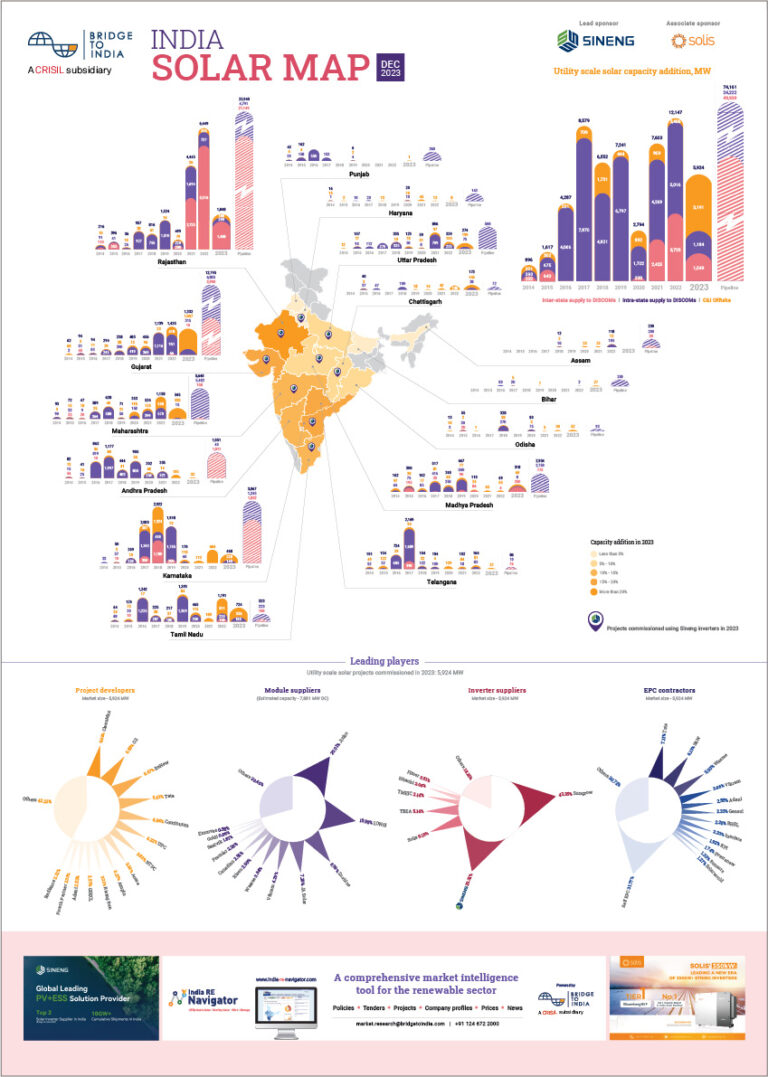CERC, the national power sector regulator, has issued a set of proposed amendments to procedure for grant of inter-state transmission system (ISTS) connectivity approval to renewable projects. Among the major proposals is relaxation in the onerous bank guarantee requirements. Deadline for commissioning of transmission line and obligation for payment of transmission charges are proposed to be linked to scheduled COD of renewable projects rather than fixed dates. Timelines to achieve specific milestones after award of connectivity approval are also proposed to be relaxed along with a proposal to enable sharing of dedicated transmission lines between various developers.
- Transmission has been a critical bottleneck to growth of the renewable sector;
- Ministry of Power, MNRE and CERC have collectively taken several steps to address associated challenges;
- These initiatives are highly encouraging for the renewable sector although some teething issues still remain;
Proposed changes in bank guarantee requirements include linking guarantee amount to type and status of bays allocated to the project instead of project capacity and complete waiver of construction bank guarantee if the developer constructs transmission bays at the ISTS substation. Moreover, CERC has proposed to reduce time of return of guarantees from six months to one month post renewable project COD.
These changes come on back of several other steps taken by Ministry of Power, MNRE and CERC over the last few years:
- The Central Transmission Utility (CTU), responsible for ISTS planning and network management, is being demerged from Power Grid Corporation to address conflict of interest between the latter’s role as transmission system developer and network manager.
- MNRE and SECI are now part of transmission planning committee resulting in better planning and synchronisation of transmission infrastructure development with renewable project development.
- The Green Energy Corridor and Renewable Energy Zone schemes are designed to create evacuation infrastructure for new renewable power capacity of 106.5 GW by 2022. Total estimated cost of these schemes is INR 647 billion (USD 8.6 billion) is being funded by the government together with concessional finance from development FIs.
- More transmission work is being tendered out through competitive bidding, as against allocated directly to Power Grid Corporation under cost plus mechanism, reducing cost and time required for new infrastructure by up to 30-50%.
- MNRE recently extended commissioning deadline for projects eligible for ISTS charge waiver from December 2022 to June 2023 besides providing blanket waiver to projects implemented under the PSU scheme and manufacturing-linked tender.
Figure: Renewable Energy Zone scheme target, GW

Source: CERC, BRIDGE TO INDIA research
Overall, these initiatives are highly encouraging for the renewable sector. Transmission has been a critical bottleneck to growth of the sector. Poor coordination, planning and execution have led to extensive delays and even cancellation of renewable power projects.
For sure, there are still many teething issues for renewable projects. Critically, there is no guarantee by the CTU that transmission infrastructure would be available by scheduled COD of the renewable project. And there is no provision for compensation in case or transmission infrastructure is not ready. There is also even now uncertainty in getting connectivity approvals particularly in Rajasthan. Heavy regional concentration of capacity – more than 50% of total solar pipeline of 41 GW is proposed to be located in Rajasthan – is still creating bottlenecks.












